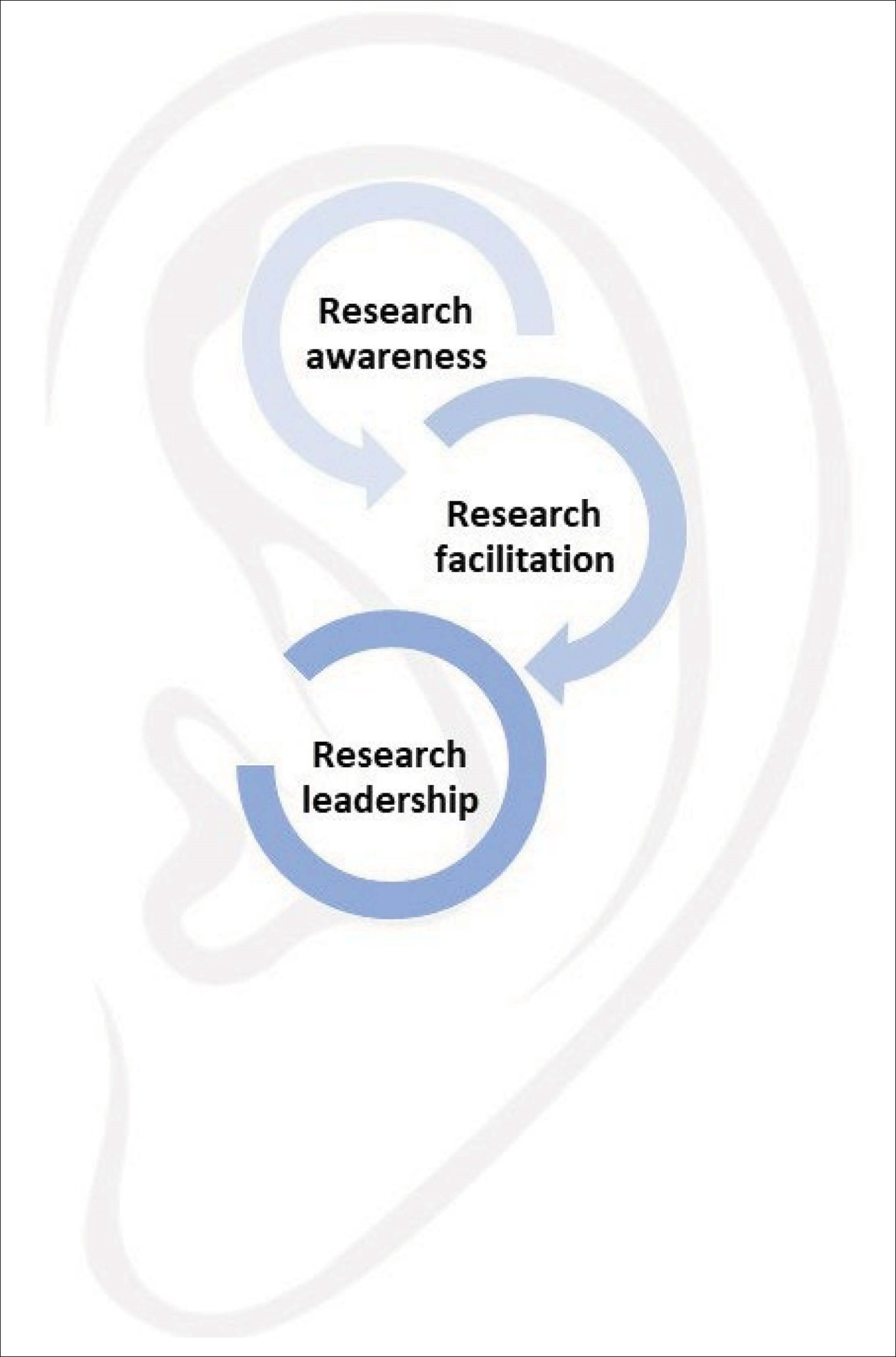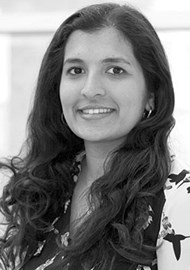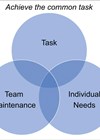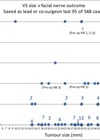Dave had a passion for research and was very encouraging in developing a research interest in others. Bhavisha and Amanda are currently working with a team of researchers, patients, research funders, the Department of Health and Social Care and NHS England, to develop the 2023-2028 UK Action Plan for Hearing loss and Tinnitus Research - a set of recommendations to grow hearing research in the UK. Here, they discuss their journey to hearing care research and how you could get involved in the world of research.
Bhavisha Parmar: how I became a research-active audiologist
During my undergraduate and postgraduate audiology training, I wasn’t quite sure how the findings of my research projects could improve patient care. In 2016 I left my NHS practice to work with the charity Sound Seekers and help develop audiology services in low-middle income countries. During this process I was regularly asked to collect data and present to senior Ministry of Health officials.
As we discussed resource planning and the staffing needs for future audiology services, I was continually asked for the evidence to back up my claims because, without evidence, there would be no change to policy. That experience inspired me to enhance my research skills and bridge my clinical and research knowledge and networks to improve the care I delivered to my patients.

Completing my PhD at UCL Ear Institute gave me many opportunities, and I now have several different roles.I am a postdoctoral research audiologist at the University of Cambridge working on the BEARS (Both Ears) study funded by an NIHR programme grant, I am a lecturer at UCL Ear Institute, and I am a research fellow with the NIHR University College London Hospital Biomedical Research Centre. I also have honorary contracts with some NHS trusts so I can keep up my clinical practice. These roles have presented me with new challenges and opportunities to learn new skills. Research has allowed me to expand my knowledge within and beyond audiology, by working with experts across disciplines. I am also very passionate about learning from, and involving, people with lived experience of hearing loss at every stage of hearing research and I truly believe that research exposure has made me a better audiologist.
Amanda Hall: how I became a research-active audiologist
My pathway to research came about by chance. I hadn’t planned to move into research but, as I was finishing my clinical training in the NHS, a research assistant job came up at Southampton University where I had studied for my Masters in Audiology. I got the job and was excited to work on clinically-relevant research in a department where I could also continue to see patients and help with teaching. I loved the variety of work and developing new knowledge, and so signed up to study for a part-time PhD.
SEE ALSO
A few years down the line I moved to Bristol. Having a PhD enabled me to get a part-time job at the University of Bristol as the audiology scientific advisor on the Avon Longitudinal Study of Parents and Children (ALSPAC). Being involved in ALSPAC was an amazing experience and opened up my mind to a whole world of research outside audiology. My colleagues were psychologists, ophthalmologists, epidemiologists, statisticians, paediatricians, geneticists etc. (I could go on). I learnt a huge amount from working in such a stimulating, multidisciplinary environment, and ALSPAC fuelled my interest in epidemiology, child development and hearing, which I continue to research today. At the same time, I wanted to continue with clinical work, which I enjoyed, as well as to ensure my research was clinically relevant. I was lucky enough to get a part-time job as an audiologist at Bristol Children’s Hearing Centre, where I still work 20 years later.
"For clinicians who think research is not for them, it is important to demystify research and really know there is a role for everyone"
My academic role is now as a part-time senior lecturer in audiology at Aston University, Birmingham UK. I love that I have the time and space to think about and investigate issues that come up in clinic, either from observations, discussions with children and their families, or with my clinical colleagues. I hope that ultimately my research will lead to direct improvements in healthcare and outcomes for people with hearing loss and their families.
Why research?
Clinicians are at the forefront of clinical services. We get direct feedback from patients, and we are responsible for evaluating and providing evidence-based practice. We also find gaps in research or clinical guidance and there are areas where we may only be able to rely on expert opinion. That is why clinicians are ideally placed to get involved in research and encourage our patients to get involved in research.
How does research help patients?
Research-active hospitals have been found to have better patient outcomes and lower patient mortality [1,2]. Even if clinical research activity forms a small part of healthcare activity, it has a positive impact on staff and organisational performance that is noticeable to the patient.
How does research help clinicians?
Research-active clinical departments have better staff retention and staff are more likely to recommend hospital organisations that are involved in research [2]. Evidence suggests that a stronger research culture appears to be associated with benefits to patients, staff and the organisation [3]. Research can also help clinicians in:
- Improving their knowledge base: new diagnostic tests and rehabilitation tools are being developed and trialled through research studies.
- Offering additional career opportunities.
- Enabling them to network and learn from colleagues in their field and beyond.
- Counting towards their continued professional development portfolio, as being research active is in the scope of practice for many health professionals.
- Enhancing consultations with patients: being better informed will help improve clinical skills, and rapport/trust with patients.
- Strengthening their skillset: critical analysis, writing, planning and communication skills.
How can I get involved in research?
There are many ways to get involved in research. You may already be involved in research activities without specifically badging them as such. For clinicians who think research is not for them, it is important to demystify research and really know there is a role for everyone. There is also a vast array of research tasks that span from being aware of research activity to leading research studies [4].
Step 1: research scoping
If you are considering becoming involved in clinical research, the first step would be to build your awareness of research processes and support available. You could:
- Join your local hospital/research library.
- Become a member of a professional body/learned society/charity associated with your field. Research findings, opportunities and guidance for clinical implementation are often disseminated through mailing lists/newsletters of these organisations.
- Contact your local research and development team for opportunities or support.
- Attend journal clubs or connect with other research-active clinicians.
- It is important to have an awareness of your local research departments, whether they are within academia or in your hospital, so they can help answer any questions you might have.
- If you are reading interesting research articles in magazines like ENT & Audiology News, why not reach out to the authors to connect and learn more?
Step 2: research facilitation
After the first stage of building research awareness, you could work up to facilitating research. Here, you could:
- Complete introductory online research training modules e.g. Good Clinical Practice (GCP) training via NIHR academy.
- Evaluate the impact of a change in practice and present your findings to your department. You could also think about presenting a research poster to discuss these findings at a conference.- Display information about a research study in your department. - Find out what research is happening in your local area and speak to patients about those opportunities.
- You could also start to build your own research network e.g. keep updated with professional bodies’ research development groups or connect with research teams at your local academic institutions.
- Liaise with industry, e.g. device/therapeutics manufacturers, to keep updated.
Step 3: research leadership
- Once you gain some confidence with research processes and build your awareness of local research activity, you could start joining research networks or building your own networks.
- You may want to explore the possibilities of setting up your own study. Contacting other researchers in your field could help you get started. There are also training opportunities available, and your hospital or academic institution may have a research design service to support you in setting up your own study.
- It is also important to take the team with you on your research journey, so it is beneficial to promote a research culture in your department and provide support to colleagues e.g. embed research in job planning/appraisals.
If you would like more information about research involvement - please contact us and we would be happy to arrange a discussion.
References
1. Ozdemir BA, Karthikesalingam A, Sinha S, et al. Research activity and the association with mortality. PLoS One 2015;10(2):e0118253.
2. Jonker, L, Fisher, SJ, Dagnan, D. Patients admitted to more research-active hospitals have more confidence in staff and are better informed about their condition and medication: Results from a retrospective cross-sectional study. J Eval Clin Pract 2020;26(1):203-8.
3. Harding K, Lynch L, Porter J, Taylor NF. Organisational benefits of a strong research culture in a health service: a systematic review. Aust Health Rev 2017;41(1):45-53.
4. Hare N, Whitehouse CL. Engaging with research: practical advice for nurses at every level. Nurs Stand 2022;37(3):30-4.












